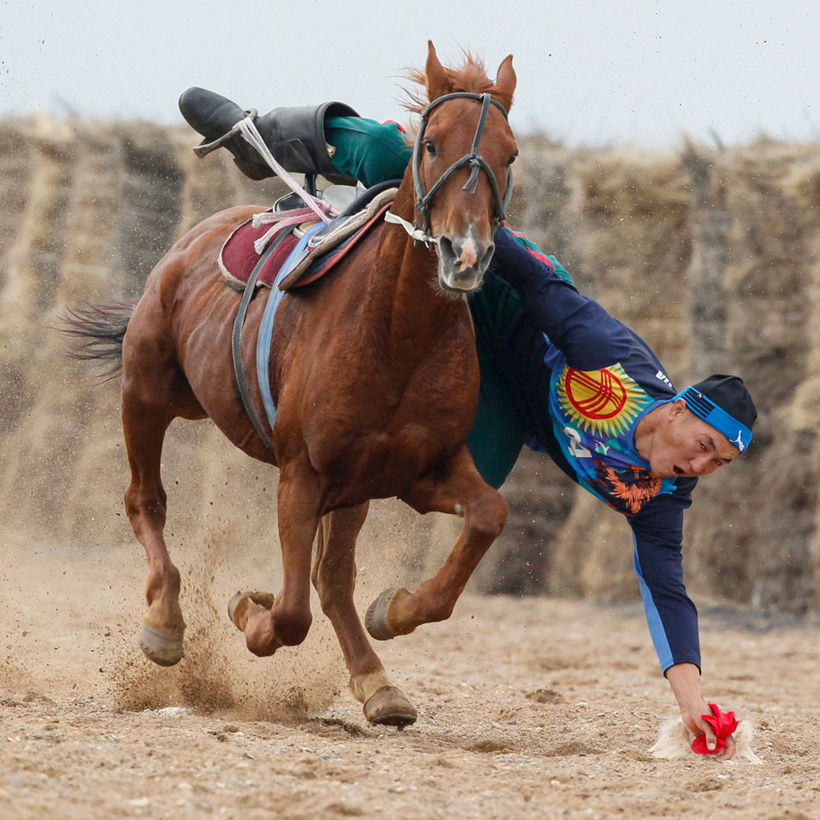Sweat, blood, the warm smell of horse excrement. Those are the three fundamental elements that register as I watch the United States getting roundly battered by Kazakhstan at the sport of kok boru. The game is an archaic form of polo in which riders fight for possession of an 80-pound goat carcass. Horses ram into one another, players are knocked to the ground and almost trampled, a scrum of frothing equine heads, gnashing teeth, and shouting ensues until one rider breaks free, holding the carcass under his leg, and gallops toward a large rubber ring into which he flings it. Score: 1–0 for Kazakhstan.
The American team is led by Scott Zimmerman, who runs a land-management business in Jackson Hole, Wyoming. He and his team of “nomad cowboys” have been diligently flying out from the U.S. to compete at kok boru for years. They’ve never had much success, but this year seems particularly rough. Zimmerman comes off his horse and is dragged in the dirt with his foot caught in his stirrup. Soon it’s 15–0, and there’s a mocking announcement that a Kazakh businessman has offered the Americans 20,000 tenge (about $40) if they can score just one point. They don’t. The game ends 18–0 to cheers from the crowd. The most powerful country in the world has been comprehensively defeated.

